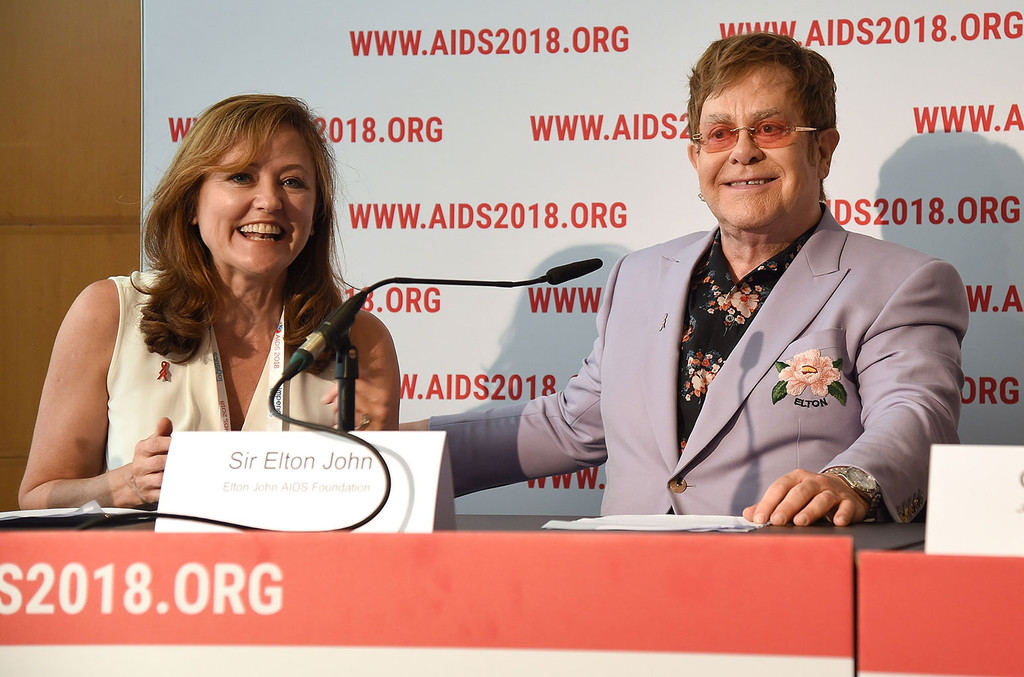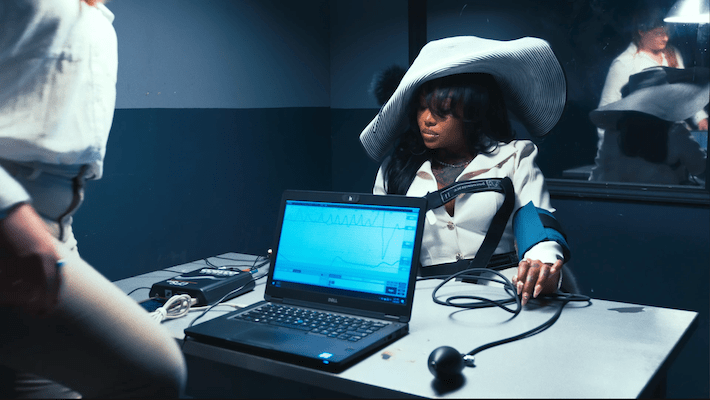Singer Elton John founded the Elton John AIDS Foundation (EJAF) in 1992 to fight the AIDS epidemic. Now one of the leading independent AIDS organizations in the world, the EJAF currently manages grants for HIV prevention and care in 55 countries, by funding frontline partners working to prevent infections, erase stigma and provide treatment for those living with the disease globally.
In April, the EJAF joined the fight against the COVID-19 pandemic with the launch of a $2 million emergency fund — established with donations from Elton and husband David Furnish and Twitter CEO Jack Dorsey — which will work to mitigate the potential damage to the global gains the organization has made for the over 37 million people living with HIV.
“We knew from other outbreaks like Ebola and SARS that when pandemics occur there is always a spike in other infectious diseases,” says EJAF’s global CEO Anne Aslett, adding that the 14 million people living with HIV are already vulnerable because of compromised immune systems, distrust in health services and other factors. “Treatment is prevention. If you spend energy and resources on supporting and caring for people infected, you slow the epidemic. That’s what gave us this moon shot aspiration at ending AIDS by 2030.”
So far EJAF has funded 43 organizations with emergency funding: nine based in Eastern Europe and 34 across Africa, sub-Saharan Asia and the U.S. Those selected provide a range of services that includes everything from soap, masks and gloves to virtual appointment and counseling services, and at home testing and treatment. Every organization offers “very low cost, practical, immediate solutions,” says Anslett, who cites organizations including Russian-based self-testing service Phoenix Plus; India-based home support network HIV AIDS Alliance; and U.S.-based mobile service Vermont Cares. EJAF will announce another round of COVID-19 emergency funding at the end of June, followed by a appearance at the International AIDS Conference, which will be held virtually July 6 through 10.
Aslett describes the early days of the AIDS epidemic as a “time of absolute terror,” as the foundation was limited by not yet fully understanding the disease and how it spread. “There was little we could do beyond reducing pain and making people’s lives more bearable,” she adds. “We couldn’t save lives.” When the coronavirus pandemic hit, it felt “incredibly familiar,” she says, noting the “panic” phase of tracking and tracing the virus, then scapegoating and blaming, and governments “scrambling to keep up.”
In taking on the Americas and the Caribbean in her new elevated role as global CEO, Aslett notes that there are still glaring discrepancies in the worldwide data among vulnerable populations. In the U.S., the majority of their work is concentrated in the Southeast, where African American gay and bisexual men have a “50-60% lifetime chance” of contracting HIV, a statistic that is much higher than many of the countries they work with in sub-Saharan Africa, according to Aslett. “In a sad way, that sense of isolation and marginalization exists in the same way in very rich, evolved economies, as it does in countries with much less resources to throw at the problem.”
Despite their very global footprint, Aslett says the foundation’s efforts continue to “shrink the world” for infected and at-risk populations. “A gay man in Bangkok has more in common with a gay man in Nairobi or Manila then their straight neighbors,” she says. “It’s human nature to seek out people who will accept you, especially when you feel that that’s really under threat. We all want to be understood and accepted for who we are.”
Pride 2020 isn’t canceled. Join Billboard and The Hollywood Reporter‘s Pride Summit & Pride Prom on Saturday (June 13) starting at 12:30 p.m. ET for performances, queer conversation, drag, artist cameos, glam sessions, DJs, dancing and more.


